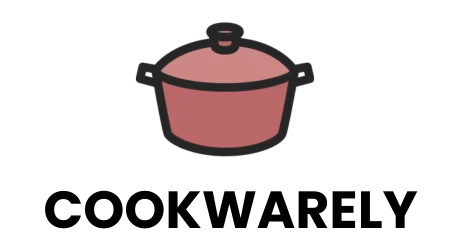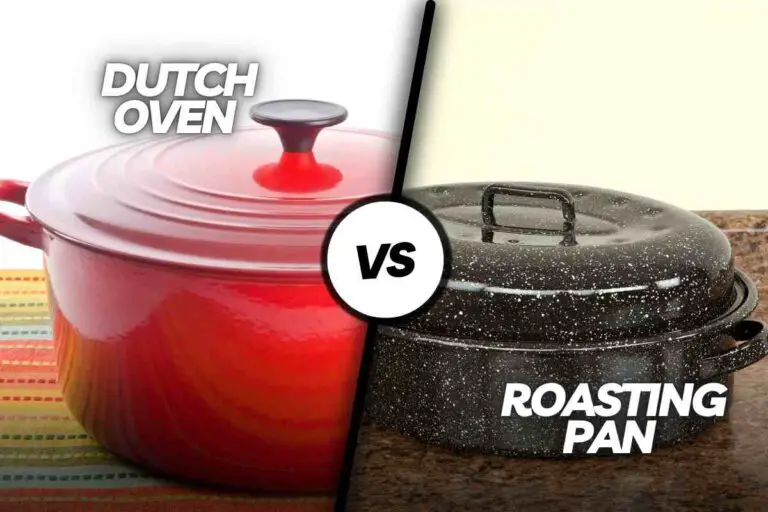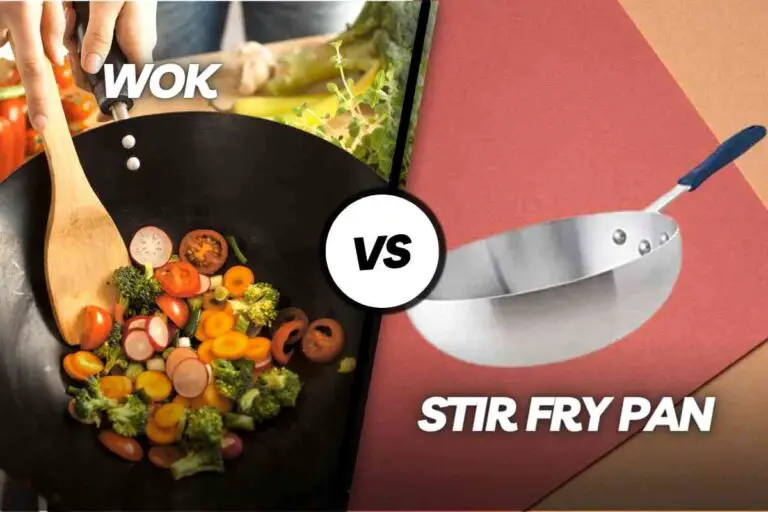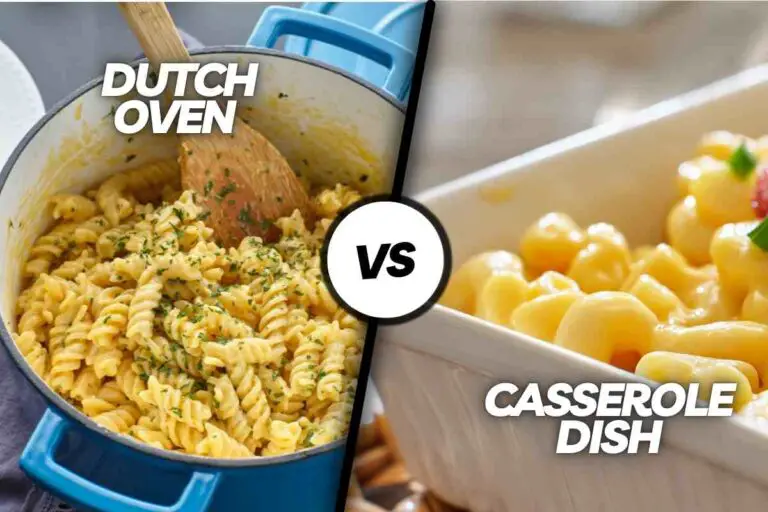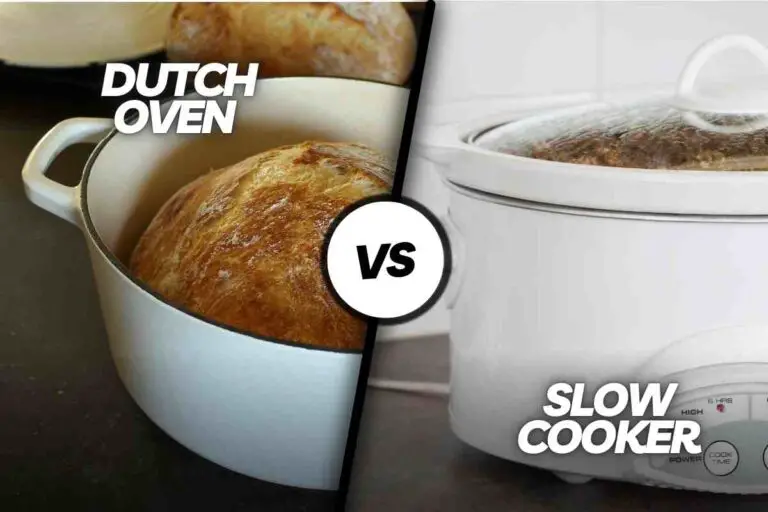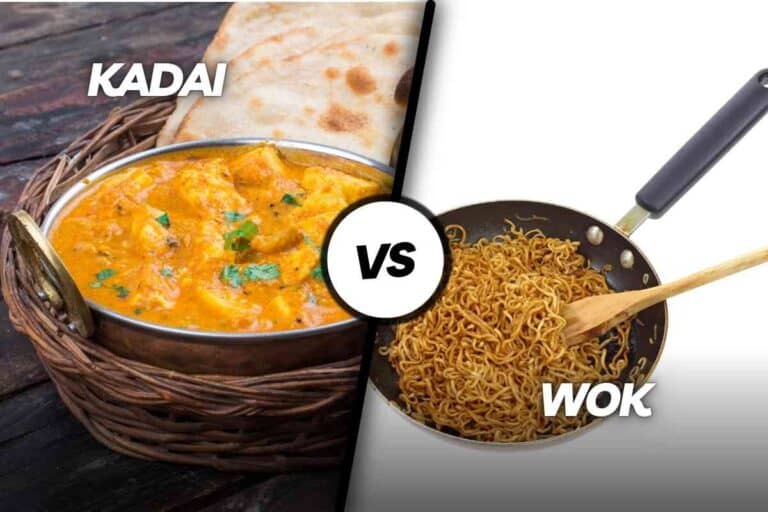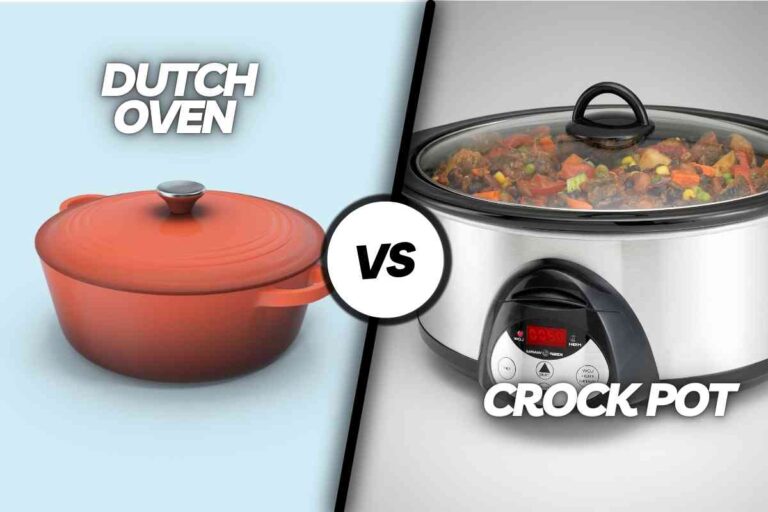9 Key Differences: Dutch Oven Vs Pressure Cooker
The main difference between a Dutch Oven and a Pressure Cooker is their cooking speed and style. Dutch Ovens excel in slow, versatile cooking, while Pressure Cookers offer rapid, efficient meal preparation.
A Dutch Oven is well-suited for recipes that require longer cooking times and benefit from slow cooking, such as pasta sauce, chili, and curries. It excels in versatile, slow-cooked dishes, offering depth of flavor and tenderness to ingredients.
In contrast, a Pressure Cooker is designed for rapid and efficient cooking. It significantly reduces cooking time by using pressure to cook food quickly, making it ideal for busy individuals or when time constraints are a concern.
- Dutch ovens can handle slow cooking, roasting, frying, baking, and more, making them suitable for a wide range of dishes.
- These ovens distribute heat evenly, preventing hot spots and ensuring consistent cooking.
- Pressure cookers significantly reduce cooking times, ideal for busy individuals looking for fast, tender results.
- The sealed environment locks in moisture and nutrients, yielding flavorful and nutritious meals.
9 Aspects: Dutch Oven Vs Pressure Cooker
| Aspect | Dutch Oven | Pressure Cooker |
|---|---|---|
| Cooking Versatility | Slow cooking, roasting, frying, baking, boiling, and more. | Quick cooking, ideal for time-saving meals. |
| Even Heat Distribution | Excellent, ensures even cooking. | Achieves even cooking through steam pressure. |
| Moisture Retention | Tight-fitting lid keeps dishes moist. | Sealed environment retains moisture. |
| Ease of Cleaning | Easy due to enamel coating. | Generally easy to clean. |
| Durability | Long-lasting with proper care. | Durable with proper maintenance. |
| Cooking Time | Longer cooking times compared to pressure cookers. | Drastically reduces cooking times. |
| Learning Curve | Easy to use for most cooking methods. | May have a learning curve for beginners. |
| Visibility While Cooking | Allows checking on food. | Limited visibility once sealed. |
| Preheating & Pressure Release | Not applicable. | Preheating and pressure release can add time. |
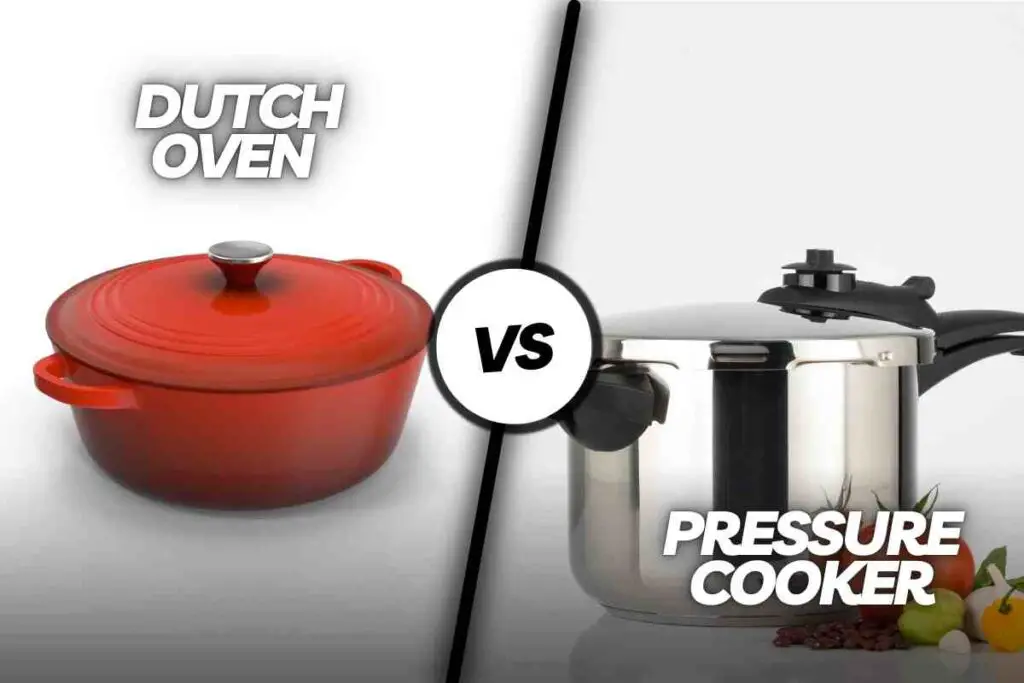
Dutch Oven Overview
What is a Dutch Oven?
A Dutch oven is a heavy-duty, thick-walled pot, typically made from cast iron or ceramic. It’s known for its versatility and ability to handle a wide range of cooking methods, making it a beloved tool among chefs and home cooks alike.
The Versatility of Dutch Ovens
One of the standout features of a Dutch oven is its versatility. You can use it for slow cooking, roasting, frying, baking, boiling, and even making soups and stews.
Its thick walls ensure even heat distribution, preventing hot spots that can lead to uneven cooking.
This makes it perfect for dishes that require gentle and consistent heat, such as braised meats and slow-cooked stews.
Benefits of Dutch Ovens
Dutch ovens offer several advantages:
- Even Heat Distribution: The thick walls and heavy lid of a Dutch oven promote even cooking, reducing the risk of burnt or undercooked spots.
- Moisture Retention: The tight-fitting lid traps moisture, ensuring that your dishes remain moist and tender.
- Easy to Clean: Many Dutch ovens come with an enamel coating, making them easy to clean and maintain.
- Long-Lasting: With proper care, a Dutch oven can last for generations, making it a valuable investment for your kitchen.
Downsides of Dutch Ovens
However, Dutch ovens also have their drawbacks:
- Cost: Quality Dutch ovens can be relatively expensive compared to other cookware.
- Longer Cooking Times: While they excel at slow cooking, Dutch ovens may require more time compared to pressure cookers.
Pressure Cooker Overview
What is a Pressure Cooker?
A pressure cooker is a sealed pot with a valve that controls the pressure inside. It uses steam pressure to cook food quickly, making it a time-saving option for busy cooks.
The Speed and Efficiency of Pressure Cookers
The standout feature of a pressure cooker is its ability to drastically reduce cooking times. It achieves this by raising the boiling point of water, which allows food to cook faster. This makes it perfect for busy individuals or those who want to enjoy slow-cooked flavors without the lengthy wait.
Benefits of Pressure Cookers
Pressure cookers offer several advantages:
- Quick Cooking: Pressure cookers can reduce cooking times by up to 70%, making them ideal for busy weekdays.
- Moisture and Nutrient Retention: The sealed environment keeps moisture and nutrients locked in, resulting in moist and flavorful dishes.
- Versatility: Many modern pressure cookers offer sauté and simmer functions, allowing you to brown meat and develop flavors before pressure cooking.
Downsides of Pressure Cookers
However, pressure cookers have their own set of challenges:
- Learning Curve: Beginners may find it challenging to master the cooking times and pressure settings.
- Limited Visibility: Once the lid is sealed, it’s difficult to check on the food’s progress.
- Preheating and Pressure Release: These processes can add to the overall cooking time.
Pros and Cons Comparison
Dutch Ovens
- Pros of Dutch Ovens:
- Versatile for slow cooking, roasting, boiling, frying, and soup making.
- Even the distribution of radiant heat ensures thorough cooking.
- The tight-fitting lid retains moisture in meals.
- Easy to clean due to enamel coating.
- Long-lasting if well-maintained.
- Cons of Dutch Ovens:
- Can be expensive compared to other cookware.
- Longer cooking times compared to pressure cookers.
- Requires a hands-on approach and can’t be left unattended for long.
Pressure Cookers
- Pros of Pressure Cookers:
- Cook food quickly, making it ideal for tough meats and grains.
- Retain moisture and nutrients in food.
- Some electric models offer heat regulation for versatile cooking.
- Cons of Pressure Cookers:
- Easy to overcook food, especially for beginners.
- Difficult to check on food while cooking.
- Preheating and pressure release can add to cooking time.
Choosing the Right Cookware
The choice between a Dutch oven and a pressure cooker largely depends on your cooking preferences and needs. Here are some factors to consider:
- Cooking Preferences and Styles: If you enjoy slow-cooked dishes, soups, and stews that develop rich flavors over time, a Dutch oven may be your best bet. On the other hand, if you’re short on time and prefer quick, tender results, a pressure cooker could become your go-to appliance.
- Types of Recipes Frequently Prepared: Consider the recipes you often cook. Do they require long-simmering and gentle heat, or do they involve tougher cuts of meat that benefit from quick tenderization? Your typical dishes should guide your choice.
- Time Constraints: If your schedule leaves you with limited time for cooking, a pressure cooker’s speed can be a lifesaver. However, if you have the luxury of time and enjoy the process of slow cooking, a Dutch oven might be more appealing.
Conclusion
In the Dutch oven vs. pressure cooker showdown, there is no definitive winner. Both have their unique strengths and weaknesses, and the choice ultimately comes down to your cooking style, preferences, and needs.
Ideally, having both in your kitchen arsenal can cover a wide range of cooking scenarios, giving you the flexibility to enjoy the best of both worlds.
Whether you opt for the versatile Dutch oven or the time-saving pressure cooker, the key is to make your decision based on what enhances your culinary experiences and suits your lifestyle.
